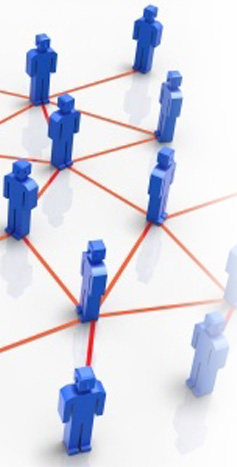

“A team or system is a network of interrelated parts in which the results is greater than the sum of its individual parts. Ideal functioning is achieved when team members or system parts learn to establish intentional and conscious relationships”
Relational or team coaching
A process consiting in team monitoring and dynamising activities through which the team develops, learns to improve its internal functioning and to use all its potential to achieve extraordinary results.
The main difference between personal and group coaching is that the latter focuses in the relationship that unite the team, and not in its individual members.
Th objectives are not the projects themselves, nor tasks the team has to carry out, but developing the ability to carry them out autonomously and without the need of external help. “The idea is not to give out the fish, but rather to teach how to fish”.
What do we do use this type of coaching for?
- To increase the team cohesion and to improve exponentially the way they operate
- To encourage organizational or strategic change and to help team members work in line with the organization's vision.
- To change the working environment and culture of the team
- To transform the emotions that limit the performance of the team
- To boost productivity, creativity and innovation within the team
- To overcome obstacles, blocks and limitation
- To use conflict as a tool to grow and be creative
What do you gain?
- Alignment of the team members and a more conscious commitment with the goals of the team
- Intentional and conscious communication and interrelation between the team members
- Tools to better manage internal conflict
- Higher efficiency and better results
- Higher satisfaction of all team members
Relational or team coaching is normally carried out in the following phases:
- Definition of the agreement between the team members (rules of the game)
- Definition of the agreement with the coach and the establishment of working processes
- Definition of the objectives to be achived through coaching
- Carrying out the periodical sessions (weekly or fortnightly) in order to: analyse the changes the team needs to make, to foster relationships between team members, overcome obstacles, take on new challenges, resolve conflics of interest...
- Review session during the coaching process: feedback about the process and redefining of objectives when necessary
- Continuation of the periodic coaching sessions
- Final session and closure of the coaching process
The recommended duration of the relational or team coaching process ranges from 6 to 12 months.